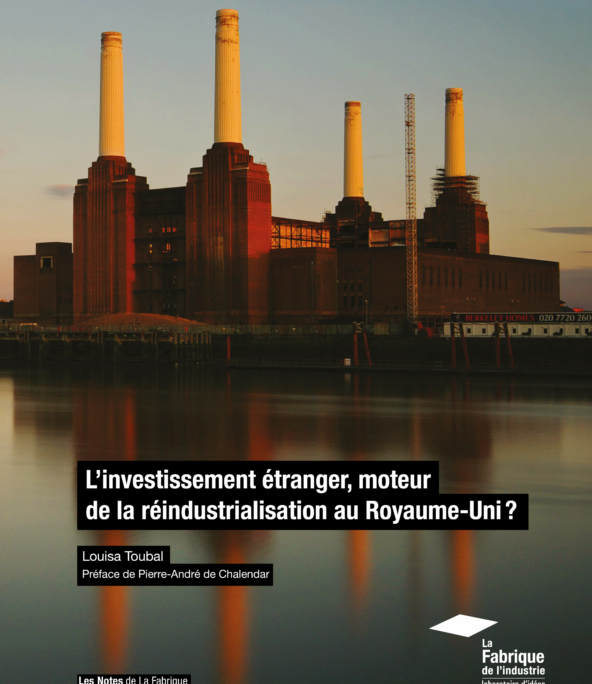Does foreign investment drive reindustrialisation in the United Kingdom?
For decades, the United Kingdom has made attracting foreign companies a key aspect of its industrial policy. The country’s public authorities were convinced from an early stage that the penetration of foreign capital would have a positive impact on the national economy.
For decades, the United Kingdom has made attracting foreign companies a key aspect of its industrial policy. The country’s public authorities were convinced from an early stage that the penetration of foreign capital would have a positive impact on the national economy. The British economy demonstrates, in this respect, that it is possible to support national industry without trying to preserve domestic “champions” at all costs. However, it would be naïve to imagine that this international openness is sufficient on its own to guarantee a dynamic, resilient industry. Foreign direct investment (FDI) is only one of the ingredients required for reindustrialisation. If its effects are to be long lasting, the policy that promotes FDI needs to be accompanied by measures for local economic development (infrastructures, support for companies, skills renewal, etc.).
Moreover, the revival of the automotive industry and the modest recovery of industrial employment in the United Kingdom should not detract from, for example, greater poverty among workers and increasing regional disparities. The overall picture is therefore mixed. While the United Kingdom has shown a high capacity to bounce back in the past, its future is highly dependent on the outcome of negotiations regarding its exit from the European Union (EU).




